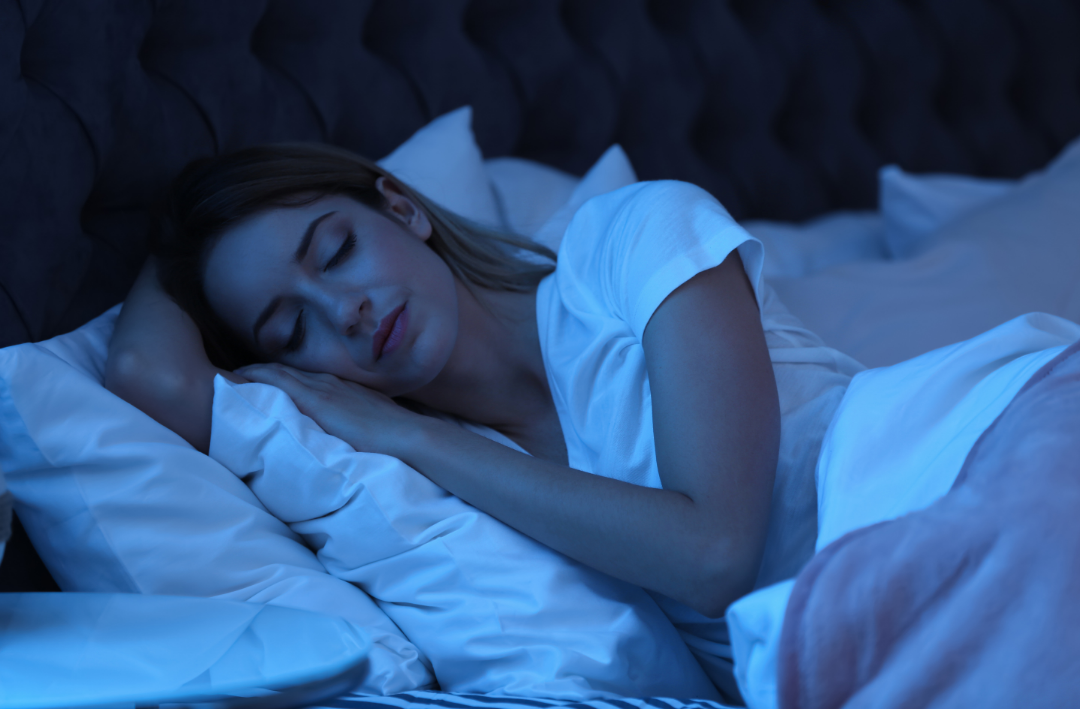The Art of Sleep: Practical Tips for Better Rest and Health
Jun 16, 2025
Why Sleep is Your Superpower
Sleep isn’t just about rest—it’s the foundation of health, energy, and mental clarity. If you struggle with fatigue, brain fog, weight gain, or stress, poor sleep might be the culprit.
In this guide, we’ll cover:
✅ Why 8 hours of sleep is essential
✅ How sleep impacts your body and mind
✅ Practical tips to improve sleep quality
✅ The best sleep-friendly foods and habits
✅ A 7-day sleep challenge to reset your sleep cycle
If you’re ready to wake up refreshed and energized, keep reading!
Why 8 Hours of Sleep Matter?
A full night of quality sleep does more than just help you feel rested. It plays a crucial role in:
✔ Brain Function → Enhances memory, focus, and problem-solving skills
✔ Heart Health → Reduces risk of heart disease and regulates blood pressure
✔ Immune System → Strengthens your ability to fight infections
✔ Weight Management → Regulates hunger hormones and curbs cravings
✔ Mental Well-Being → Lowers stress and supports emotional balance
Sleep Fact: According to the CDC, adults need 7–9 hours of sleep per night. Chronic sleep deprivation has been linked to obesity, diabetes, and cognitive decline.
Understanding Sleep Cycles
Your sleep follows a structured cycle that restores your mind and body.
The Four Stages of Sleep
1️⃣ Light Sleep (Stages 1 & 2) → Prepares your body for deep sleep.
2️⃣ Deep Sleep (Stage 3) → Supports muscle repair, immune function, and growth.
3️⃣ REM Sleep (Stage 4) → Essential for learning, memory, and emotional regulation.
Fun Fact: Missing out on deep sleep and REM sleep can leave you feeling mentally sluggish, unmotivated, and irritable the next day.
How to Improve Sleep Quality (Without Sleeping Pills!)
1. Create a Sleep-Friendly Environment
✅ Keep your room cool (60–67°F)
✅ Block out light with blackout curtains or an eye mask
✅ Reduce noise with earplugs or a white noise machine
✅ Invest in a high-quality mattress and pillows
2. Build a Consistent Sleep Routine
✅ Go to bed and wake up at the same time every day (even on weekends)
✅ Wind down before bed (no screens, bright lights, or intense activity)
✅ Try a calming pre-sleep ritual → Reading, stretching, meditation
3. Eat for Better Sleep
Best Sleep Foods:
✔ Almonds, walnuts, tart cherries (rich in melatonin)
✔ Oatmeal, bananas, yogurt (boosts serotonin)
✔ Fatty fish, eggs, and dairy (magnesium & vitamin D)
Worst Sleep Disruptors:
❌ Caffeine (stop drinking 6+ hours before bed)
❌ Alcohol (messes with deep sleep)
❌ Heavy meals late at night
4. Manage Stress & Overstimulation
✔ Reduce screen time → No blue light 1 hour before bed
✔ Practice deep breathing → 4-7-8 breathing method (inhale 4s, hold 7s, exhale 8s)
✔ Try mindfulness apps → Calm, Headspace, Insight Timer
5. Exercise for Sleep Health
✔ Strength training improves deep sleep
✔ Light evening yoga or stretching reduces stress
✔ Avoid high-intensity workouts before bed (raises cortisol)
How Sleep Deprivation Affects Your Health
Chronic sleep loss isn’t just about feeling tired—it can have serious long-term health effects:
❌ Brain Fog & Poor Memory → Sleep is essential for cognitive function
❌ Weight Gain → Increases cravings and slows metabolism
❌ Anxiety & Mood Swings → Lack of sleep raises cortisol (stress hormone)
❌ Increased Risk of Dementia → Sleep helps remove toxins from the brain
❌ Weakened Immune System → Higher risk of colds, flu, and chronic disease
Did You Know? Being awake for 17+ hours is like having a blood alcohol level of 0.05%, which impairs reaction time just like drinking alcohol!
The 7-Day Sleep Challenge: Improve Your Sleep in One Week!
💤 Day 1: Set Your Sleep Goal → Choose a consistent bedtime and wake-up time
💤 Day 2: Optimize Your Bedroom → Adjust temperature, lighting, and bedding
💤 Day 3: Establish a Wind-Down Routine → Try a warm bath, tea, or reading
💤 Day 4: Reduce Screen Time → Turn off devices 1 hour before bed
💤 Day 5: Improve Your Diet → Eat a light, balanced dinner with sleep-supportive foods
💤 Day 6: Practice Mindful Relaxation → Try guided breathing or meditation
💤 Day 7: Reflect and Adjust → Journal your sleep quality and make tweaks as needed
Conclusion: Prioritizing Your Sleep for Long-Term Health
✔ Sleep is the #1 tool for better energy, focus, and long-term health.
✔ Simple changes like optimizing your environment and managing stress can have a huge impact.
✔ By committing to a consistent sleep routine, you’ll wake up feeling refreshed, sharp, and ready to take on the day.
Take Action Today!
✅ Try the 7-day sleep challenge
✅ Make one small change tonight
✅ Track your sleep for better health & performance
Book a Balance Assessment Today!
If you’ve noticed unsteadiness, or a fear of falling, let’s build your confidence with expert-led physiotherapy sessions.
Get Your Free Guide to Strength & Mobility for Midlife
Download - "5 Best Strength Exercises for Midlife"
We hate SPAM. We will never sell your information, for any reason.





